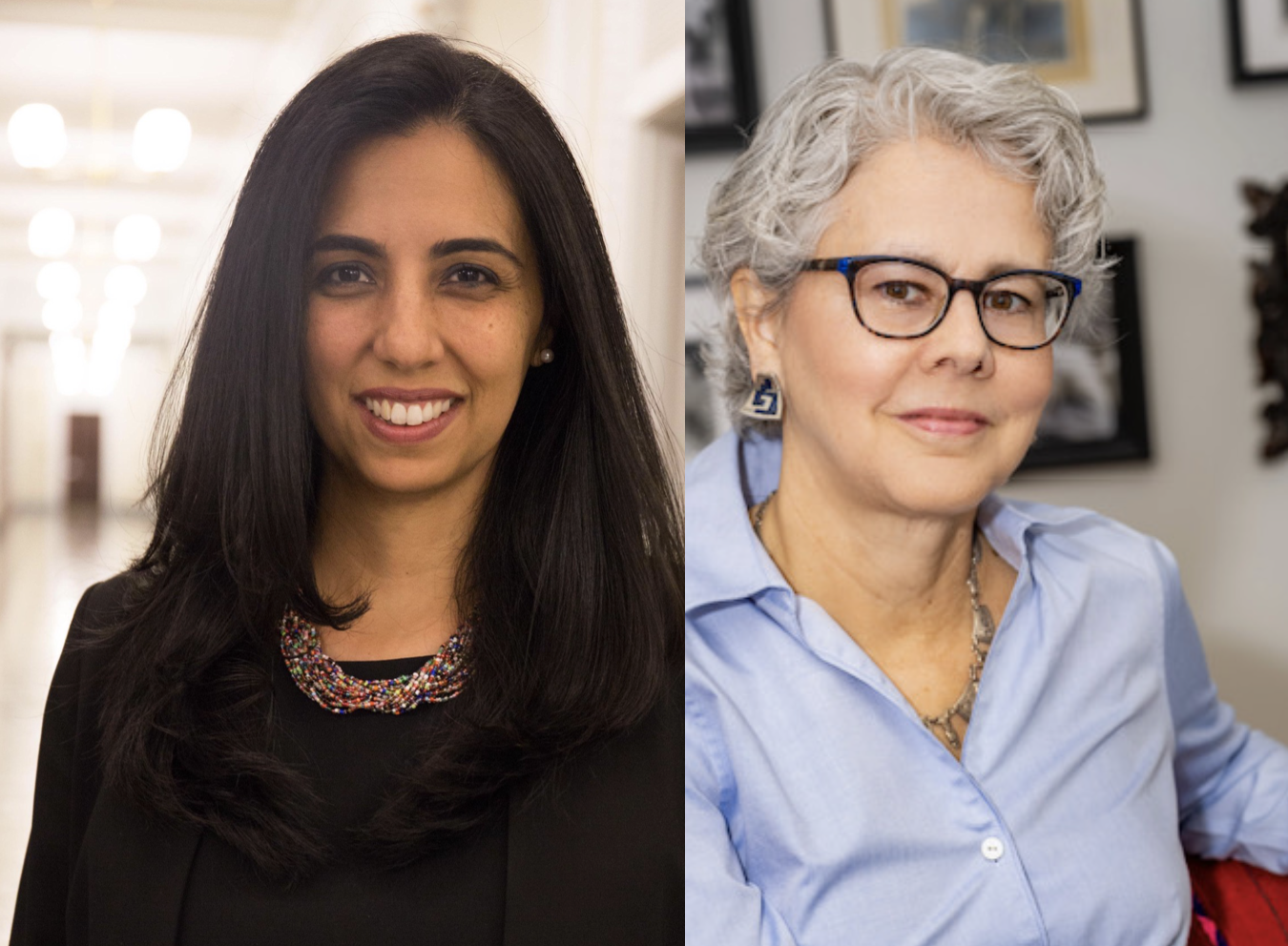Heavy Lift: What a Top Funder Is Doing to Help America’s Poorest Big City
/The question of how philanthropy can reduce poverty and inequality in America is hardly new. But this has become an ever more timely topic as some of the nation’s most prominent living donors turn their attention to the domestic wealth gap—joining a fight that legacy foundations like Ford, Kellogg and Annie E. Casey have long been engaged in.
Emerging anti-poverty funders include some of the wealthiest people of our time, like Mark Zuckerberg and Priscilla Chan, Bill and Melinda Gates, and Michael Bloomberg, as well as Jeff and MacKenzie Bezos, and Sergey Brin. All these donors have the kind of colossal wealth that will likely fuel giving for decades to come, and their new grantmaking is already reshaping the funding landscape.
That’s certainly the case with Steve and Connie Ballmer, whose budding philanthropic enterprise, the Ballmer Group, taps a fortune that Forbes currently estimates at nearly $43 billion. Although it has taken some time for the features of Ballmer giving to become clear, economic mobility and poverty alleviation have been front and center from the start. The couple are unafraid to make large general support grants to effective nonprofits, and while national organizations get Ballmer money, most of the focus has been on local work in Washington State, Los Angeles and Detroit.
The Detroit area is the latest addition to that list. It’s also a place deeply important to Steve Ballmer. Before his career as a Microsoft executive in Washington and his purchase of the L.A. Clippers in 2014, Ballmer was born and raised in a suburb of the Motor City. Over the course of his lifetime, Detroit has suffered major reversals, taking on a central role in the story of “Rust Belt” decline.
According to some, Detroit’s much-vaunted downtown renaissance signals a halt to that downward slide. But Ballmer isn’t so sure. In a recent interview for The Detroit Jewish News, he praised real estate mogul Dan Gilbert’s downtown development work, but also voiced serious doubts about Detroit’s supposed comeback. Characterizing Detroit as a city of neighborhoods, Ballmer remarked that a drive from downtown to Farmington Hills, where he grew up, illustrates the magnitude of the area’s challenges.
Census data released earlier this year found that while incomes have been rising in Detroit and the poverty rate has declined in recent years, it still remains America’s poorest big city, with a third of residents living in poverty.
In recent years, we’ve written often about the growing array of funders focused on Detroit’s challenges and how the city has become something of a test case for philanthropy’s renewed efforts to address entrenched urban poverty. The Ballmer Group’s arrival on the scene is the latest development in a story that includes big names like Ford, Kellogg, Kresge and JPMorgan Chase.
Ballmer’s connection to Detroit may be personal, but the Ballmer Group has engaged professional expertise as it begins grantmaking in the area. Kylee Mitchell Wells, the head of Ballmer’s small team in Michigan, is a former grants management official for the City of Detroit with “extensive experience working across southeast Michigan’s public, private and social services sectors,” according to the Ballmer Group. Mitchell Wells served as point person for the Ballmers’ initial round of Detroit grants this fall, which totaled over $16 million.
Just as the Ballmer Group instantly become one of the biggest anti-poverty funders in Los Angeles when it showed up in that city a few years ago, it’s now shifted the funding landscape for Detroit’s nonprofits. And here, as in L.A., the organization has made a point of being respectful of local knowledge and talent—showing that at least some billionaire philanthropists have learned that it’s not helpful to parachute in thinking you have all the answers.
The Ballmers have emphasized how much trust they place in Mitchell Wells to identify grantees that can boost outcomes on a neighborhood-by-neighborhood basis. "You want to make sure that you're being reflective of what the community needs are and not your own internal thinking of what you deem those needs to be," Mitchell Wells remarked. That attitude is borne out by the Ballmers themselves, who undertook a learning tour in the area prior to making their first grants. The trip involved meetings with city leaders like Mayor Mike Duggan, as well as the heads of foundations like Kresge and Skillman.
So what does this initial $16 million actually fund? According to the Ballmer Group, the 19 grants reflect three priorities: improving quality of life for kids and families, providing neighborhoods with capital and services, and advocating for policies that effect “systems-level change” via the public sector.
The grantees in each area cover a lot of bases (see a full list here), but education is one unifying theme. As we’ve seen, the Ballmers have given big to outfits like the College Advising Corps and the Achievement Network to boost outcomes for low-income students in both the collegiate and K-12 arenas. Other national Ballmer moves on education include hefty gifts to Communities in Schools and Strive Together. Recently, the couple also made a $59 million impact investment in Social Solutions, which leverages data and tech to improve outcomes for underprivileged youth, including in K-12 schools.
In Detroit, the Ballmer Group gave grants to places like City Year Detroit and the Detroit Children’s Fund for programs supplementing primary education, as well as to the American Heart Association and Planned Parenthood of Michigan, to promote education around specific areas like health.
Related:
The Ballmer Express: Where's This Anti-Poverty Funder Heading Now?
Targeting Support: Behind a Big Impact Investment by the Ballmer Group
The Bigger Picture: Behind Millions in Grants to Drive Policy and Systems Change on Education
The organization also gave grants to a number of community development corporations focused on workforce development and housing in particular neighborhoods. In Detroit and elsewhere in the Rust Belt, workforce initiatives have become a philanthropic staple, attracting support from foundations and corporate donors alike. Working at the local level, as Ballmer seems wont to do, these efforts can certainly spur enterprise and open up opportunity for low-income people of color. But without the right partnerships—and favorable political and economic headwinds—such projects can fizzle.
That brings us to the final pillar of the Ballmers’ new Detroit giving: policy. It’s hard to speculate based on these initial grants, but they do suggest an interest in building grassroots leadership and strengthening the political voices of people from low-income communities. Ballmer Group gave to the Detroit People’s Platform, Education Trust Midwest, and the Michigan League for Public Policy—in partnership with the Ford Foundation. It also gave support for the Community Foundation for Southeast Michigan to encourage census participation among “hard to reach” populations.
It’s interesting to see support flow that way, given Steve Ballmer’s reputation as a data guy. As his work on USAFacts amply demonstrates, Ballmer sees close links between data and policy. Perhaps that’s more the case on the national level, where USAFacts places its focus. But in their urban philanthropy, the Ballmers have also been quick to partner with fellow billionaires Bloomberg and Gates on data-driven approaches.
In addition to tech-enabled policy solutions, a similar coterie of funders has backed Opportunity Insights, a research institute based at Harvard and led in part by economist Raj Chetty. The institute’s Opportunity Atlas draws on census data to map out where children have the best chances to get ahead, and the worst.
The promise of that work is local policymaking—and local giving—that makes money go further by pinpointing exactly where it can do the most good. This is an exciting prospect. But the fact remains that place-based philanthropy, no matter how “data-driven” it is, can be a fragile thing. The challenge for mega-givers wading into these waters is to fund anti-poverty strategies that can make a dent in the face of low-wage labor practices, economic downturns, global market forces, and stubborn patterns of racial segregation: factors that all hit home in Detroit. Even the most determined philanthropic efforts can count for little, given the powerful forces stacked against America’s urban poor. You need only look at the Mott Foundation’s heroic efforts over decades to rescue nearby Flint, with over $1 billion in grants, to realize the long odds facing funders who hope to turn things around in distressed cities with entrenched poverty.
As we said, though, the Ballmers are donors who do their homework. And judging by the Ballmer Group’s early Detroit grants, the couple seems to understand what they’re up against.
Related:







































